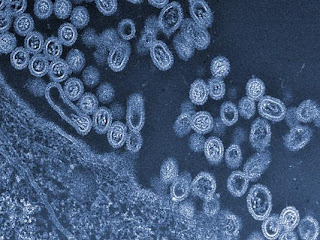 |
| Bird flu researchers want to create deadly virus in lab |
The H7N9 bird flu virus has killed 43 people in China. The 22 international researchers from 15 institutions say the infectivity research "is necessary and should be done," a statement in Science magazine said. They promise to follow enhanced lab safeguards. Similar efforts to study a more transmissible flu virus, for H5N1 bird flu, triggered a research moratorium and controversy in 2011.
The virus is believed to usually travel from poultry to people in the 130 cases seen in China. So far, at most only two cases appear to involve person-to-person infection with the flu. A case of a 60-year-old father giving the illness to his 32-year-old caretaker daughter was reported this week in the journal BMJ. While the H7N9 cases stopped in March, experts fear a re-emergence of the virus this fall, potentially in a form immune to anti-viral drugs.
"The risk of a pandemic caused by an avian influenza virus exists in nature," the researchers said in the statement led by Dutch virologist Ron Fouchier of Erasmus MC in Rotterdam. Forchier was prominent in the 2011 dispute over similar infectiousness research to make the H5N1 virus transmissible among ferrets. The statement said researchers will follow lab safeguards put into place following that controversy. They hope that by determining what changes might make the virus more dangerous to people, they can also aid vaccination efforts in the event of a natural outbreak.
The proposal still is controversial, with some researchers calling for the very highest level of security for labs pursuing the research. "The scientific justification presented for doing this work is very flimsy, to put it mildly, and the claims that it will lead to anything useful are lightweight," said Princeton's Adel Mahmoud in comments to Science. While U.S. research-funding agencies under the Department of Health and Human Services indicated they would review proposals to perform the infectivity research, Science also reported that prominent Chinese labs do not appear interested in such efforts.